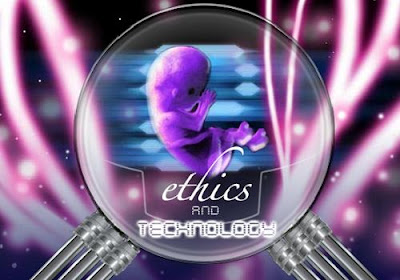The Ethics of Hacking Ourselves
Mankind
strives to be better. Generation after generation, we work as individuals and
as a society to improve our lives and those of our offspring. Over time, our
technological development has been exponential, to the point where scenarios
that only seemed to have a place in a science fiction script are quickly
becoming a reality. The scientific innovations, now increasingly diversified
and accelerated by the private sector, are bringing us the tools to modify
ourselves and our children.
This
is what we refer to as “human enhancement”, which could be defined as “any attempt to temporarily
or permanently overcome the current limitations of the human body through
natural or artificial means” (IEET 2009). This is not limited to
therapeutic uses, but extends to voluntary alteration technologies, such as:
genetic engineering, robo-prosthetics, neural implants and brain-computer
interfaces, nanomedicine, and many others. These technologies, then, give us
the option to become more that what we were physically designed to be. The
question is then, is it right to do so?
The
medical purposes, in the case of technologies merely oriented to treating and
dealing with injuries and sickness, the consensus is that their use is
justified and ethical. It is when we enter the realm of “non-necessary”
alterations that the true debate arises. Although the arguments may be
different when referring to one technology or another, the central narrative is
usually constructed around three main thematic axes: the moral philosophy of these
technologies, their impact on the individual, and their implications on society
as a whole.
From
a purely philosophical approach, and objective and unbiased consensus is hard
to reach. On one side, freedom of choice and the right to decide over one’s own
body may justify any alteration or improvement as long as it does not harm
anyone. These enhancements—also framed as “enablements” by their defendants—can
be seen as a just acceleration of our evolution, geared towards the greater
good. On the other side, these actions can also be seen as “playing god”, and
simply “incorrect” on the ground that they alter the natural physical
development of our species.
From
the perspective of the individual, these technologies can be seen as
excessively intrusive, especially in the case of genetic modifications made on
children before birth. In these situations, as well as in adult enhancement
procedures, the results can have a tremendous impact on identity and
self-perception, for the can result in sensations of dehumanization or
personality shifts (DeGrazia 2005). Nonetheless, these personality shifts can
also lead to better, more stables lives, and do not necessarily have to be
negative.
Finally,
transhumanism has ethical implications when scaled to society as a whole. The
fact that the option of enhancing oneself would only be available to the higher
social class at first, these physical alterations would mean yet another
advantage over working class and poorer people. This would, in turn, broaden
the inequality of opportunities between those who can access these technologies
and those who cannot, to the point where longevity could be fully dependent on
the access to large amounts of financial resources. However, those who advocate
in favor of human enhancement could argue that unfairness is already
omnipresent in society, and has been there throughout history even in the
absence of transhumanism (Farah 2002). Those in favor of these technologies
could also argue that in order to scale them and make them accessible for the
general public, it is necessary to initially limit them to those with a higher
purchasing power.
In
summary, there are serious implications that come with technological development
that should be addressed in time in order to avoid subsequent conflicts and
never-ending bureaucratic procedures that could hinder innovation and be
counterproductive. Despite the radically different opinions on the topic, there
is a wide array of universally beneficial applications for these technologies,
and thus their development, if steered correctly, could mean the beginning of a
new era for mankind. One thing, however, is certain: the development of science
cannot be stopped, but it is up to us the shape it in a way that will build a
better future for all.
“Your scientists were so preoccupied with
whether or not they could, they didn’t stop to think if they should”
(Jurassic Park, 1993)
Paolo Delaunay
Bibliography:
Institute
for Ethics and Emerging Technologies (IEET). Entry on “Human Enhancement”.
Retrieved 26 February 2018.
DeGrazia, David (2005). "Enhancement Technologies and Human
Identity" (PDF). Journal
of Medicine and Philosophy. Retrieved 26 February 2018.
Farah, Martha J. "Emerging ethical issues in neuroscience". Nature Neuroscience.



Comments
Post a Comment